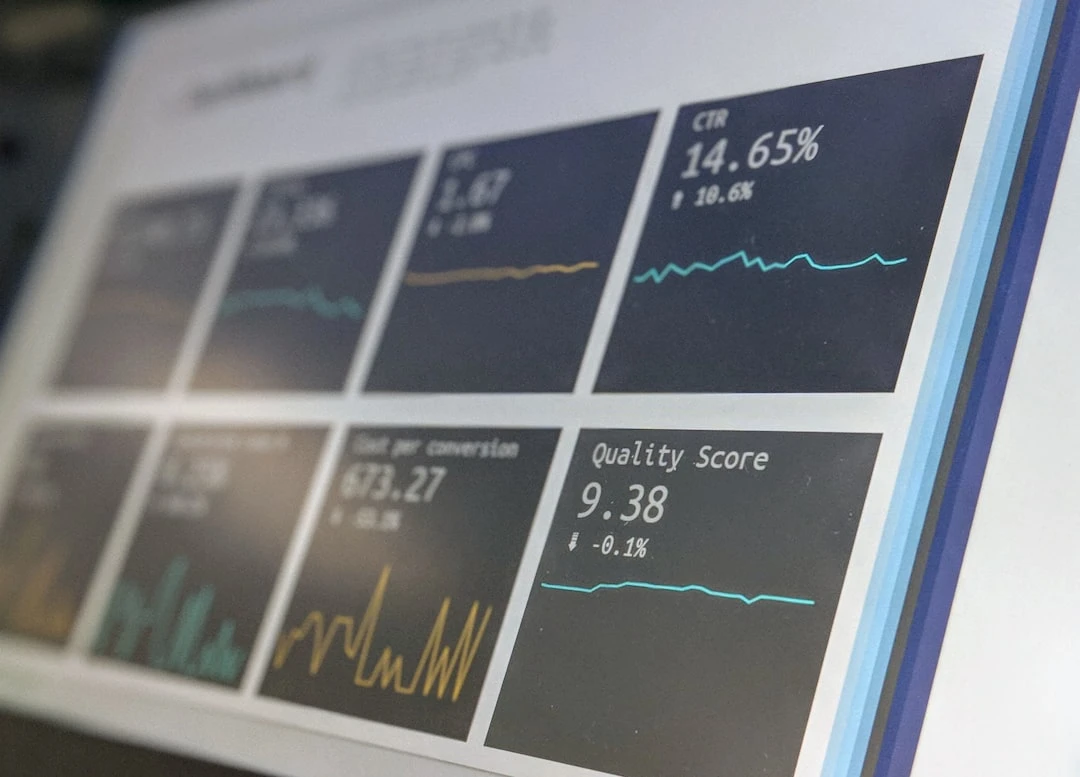Selling Apartments in Estonia: What You Should Know Before Making a Purchase Decision?

Buying an apartment is one of the biggest financial decisions in life, requiring thorough preparation and expertise. The Estonian real estate market has developed several important trends and nuances by 2025 that potential homeowners should familiarize themselves with. In this article, we provide an overview of everything important that an apartment buyer should consider before completing the transaction.
The apartment purchase process in Estonia
Buying an apartment in Estonia consists of several stages that are worth understanding thoroughly so that the process runs smoothly:
Assessing financial capacity - Before viewing apartments, it's worth assessing your financial resources and, if necessary, requesting a loan confirmation from a bank. This provides a clear picture of which price range of apartments to view and also strengthens your negotiating position with the seller.
Selecting an apartment - Once your budget is clear, you can begin searching for a suitable apartment. In 2025, the Estonian real estate market offers a diverse selection of both new and secondary market apartments. The choice depends largely on the buyer's needs, preferences, and lifestyle, so it's worth comparing different options and evaluating which solution suits you best.
Reviewing documents - This is one of the most critical stages, where you must review the apartment's documentation, including land register and building register entries. A thorough document review helps prevent future problems and surprises.
Notarial procedures - In Estonia, real estate purchase and sale transactions must be formalized through a notary. The notary verifies the accuracy of documents and makes appropriate entries in the land register, ensuring the transaction is legally formalized correctly.
Apartment handover - Apartment handover is the process during which the condition of the property and utility readings are documented and a handover deed is prepared. This document notes, for example, energy consumption readings, appliance manuals and keys are transferred, and it is verified that the property condition matches previous agreements. This procedure is important for confirming the agreement between buyer and seller and takes place after the notarized sales contract is signed
Apartment prices and market trends in 2025
Several important trends can be observed in the Estonian apartment market in 2025 that buyers should know about:
Price changes: In April 2025, the median apartment price is approximately €2162/m², which is 2.1% lower than a year ago. This indicates a certain stabilization in the market, which gives buyers better negotiating positions.
Future forecast: According to experts, property prices may increase by at least 5% during 2025, especially for energy-efficient apartments. Arco Vara analysts highlight that energy-saving apartments are increasingly sought after by buyers.
Regional differences: The supply volumes in the Tallinn and Tartu secondary markets have undergone some changes over the past year, which may affect price formation. In smaller cities, there may be differences in supply and price levels, but more precise market trends depend on the specific region and current situation.
New apartments market: There are some changes visible in the new apartment sales, influenced by different buyer preferences and market conditions. Demand may vary over time and by region, affecting both new and secondary market apartment interest. Purchasing behavior is shaped by multiple factors, including price level, location, and supply availability.
It's worth being aware of these trends, as they directly affect buyers' negotiating positions and possible future investments. For a more detailed overview of Estonian apartment price developments, we recommend exploring the Kinnisvara24 statistics environment.

What to check before buying an apartment?
Before buying an apartment, you should pay attention to several important aspects to avoid future problems:
1. Apartment association condition
Check the association's financial situation, any planned renovation work, and the repair fund status. Repair fund payments can significantly affect the apartment's maintenance costs. Ask the seller for the latest association meeting minutes and inquire:
How does the association operate?
Has the building undergone or is it planning major renovation work?
What is the repair fund payment and is it sufficient for building maintenance?
Does the association have any debts?
2. Utility payments and maintenance costs
Review utility bills from recent months to get an overview of costs related to apartment maintenance. It should be considered that energy costs may increase in the future, especially for buildings with lower energy efficiency. Therefore, it is advisable to assess maintenance costs in different areas and buildings to make more informed decisions.
3. Apartment technical condition
Check the apartment's technical condition - electrical system, plumbing, moisture damage, and other potential problems. If necessary, involve an expert who can help assess the apartment's actual condition and identify any hidden problems.
Pay attention to the following aspects:
Are there signs of moisture damage in the apartment (mold, stains on walls/ceilings)?
Is the electrical system up to date or does it need renovation?
What is the condition of the windows, doors, and floors?
Are there unpleasant odors in the apartment that might indicate hidden problems?
4. Location and infrastructure
Assess the area's infrastructure, public transportation options, proximity to schools and kindergartens, and other important services. These factors significantly affect both daily quality of life and the future value of the property.
Visit the area at different times of day to get a better overview:
How close are important services (shops, schools, healthcare facilities)?
What is the traffic noise and overall safety at different times of day?
What are the parking options?
5. Renovation potential
If you are considering renovating the apartment, it's worth researching in advance what work may require permits or apartment association approval. For major changes, cooperation with other owners may be necessary. Some construction work may be regulated and require additional approvals, so it's important to clarify what requirements apply to your specific situation before proceeding.
Kinnisvara24 advantages in apartment search
Kinnisvara24 was created specifically for the Estonian real estate market, offering several advantages in apartment search:
Unique offers - The Kinnisvara24 portal features offers not available on other real estate portals, giving buyers a wider selection
Trilingual platform - Estonian, Russian, and English, making the portal accessible to all people living in Estonia
Detailed search system - The ability to filter apartments based on various criteria to find a home that meets your needs
Modern user-friendliness – A simple, fast, and mobile-friendly environment allows you to search for real estate on the go, save favorites, and receive notifications about new suitable offers.
A wide selection of Tallinn apartments and apartments located elsewhere in Estonia can be conveniently browsed on the Kinnisvara24 portal, where you can use detailed filters and compare various offers.
Legal aspects of apartment purchase
When buying an apartment, it's important to be aware of legal nuances that may affect the transaction:
1. Document review
Before purchasing an apartment, it is recommended to familiarize yourself thoroughly with all important documents related to the real estate's ownership rights and condition. This helps prevent potential problems or confusion at a later stage. You should ensure that the data related to the apartment is correct and that there are no restrictions or debts that could affect the purchase transaction. Typically, it is recommended to pay attention to, for example, the following documents:
documents proving ownership rights
apartment area and plan
data reflecting energy efficiency
certificates issued by the apartment association (e.g., proof of no debts)
When reviewing documents, it's useful to consult with the seller or a specialist in the relevant field to get a clear picture of all circumstances.
2. The notary's role
The apartment purchase is formalized at a notary's office, where an official purchase and sale agreement is signed. The notary's task is to ensure the transaction is lawful and that all important matters are clear and correctly formalized. The notary typically verifies, among other things:
The parties' personal identity
Ownership rights data
The contract's compliance with laws
Transparency of important matters regarding the transaction
Transaction confirmation at the notary provides assurance to both parties and helps prevent future disputes.
3. Contract terms
Before signing the purchase and sale agreement, it's worth familiarizing yourself thoroughly with the contract. Attention should be paid to payment arrangements, handover agreements, and other important terms that may affect the transaction's smoothness and future legal certainty. If there are points in the contract that require clarification, it's wise to ask for more information or consult with an expert. Clarity before signing helps avoid misunderstandings later.
Apartment association management and apartment owners' rights
When you buy an apartment, you automatically become a member of the apartment association, which brings both rights and responsibilities:
Participation in association meetings - You have the right to participate in all apartment association meetings and vote on important decisions. This provides an opportunity to influence decisions regarding building management and development.
Common property maintenance - In apartment buildings, certain building parts such as: facade, roof, and other load-bearing structures – belong to all apartment owners jointly, regardless of their location in the building. The management, maintenance, and possible repair of these parts is typically carried out through the apartment association. Additionally, the association is generally responsible for problems and damages arising from co-ownership. Therefore, it's important to understand how the association operates and what its role is in maintaining common areas.
Repair fund payments - Apartment owners must pay agreed-upon amounts to the repair fund, which is intended for building maintenance and renovation. These payments are mandatory and their amount is decided at the association meeting.
As an apartment owner, you have the right to:
Receive information about the association's activities
Make suggestions for improving building management
Review the association's financial documents
Candidate for the association's board
Summary
Buying an apartment in Estonia in 2025 offers numerous opportunities but requires thorough preparation and awareness. Carefully review all documents, the apartment association's condition, and technical situation. Pay attention to the location's infrastructure and the area's development prospects.
For smooth real estate transactions, we recommend using the Kinnisvara24 portal, which offers a wide selection of apartments, useful tools, and advice and comments from real estate professionals operating in the market. Our detailed search system helps find a home that meets your specific needs, whether your priorities are location, price, size, or energy efficiency.
To find your dream home, visit Kinnisvara24 apartment offers and make an informed decision that you'll be satisfied with for years to come.
Search
Keywords
Most read articles
- Price per Square Meter of Apartments in Tallinn in 2025

- Estonian Apartment Prices and Market Expectations in 2025

- The Apartment Market in Estonia's Largest Cities in 2025

- Notary Fee and State Fee – Who Pays and How Much?

- Five-year transition period ended: nearly zero-energy building requirements extended to new small residential buildings
